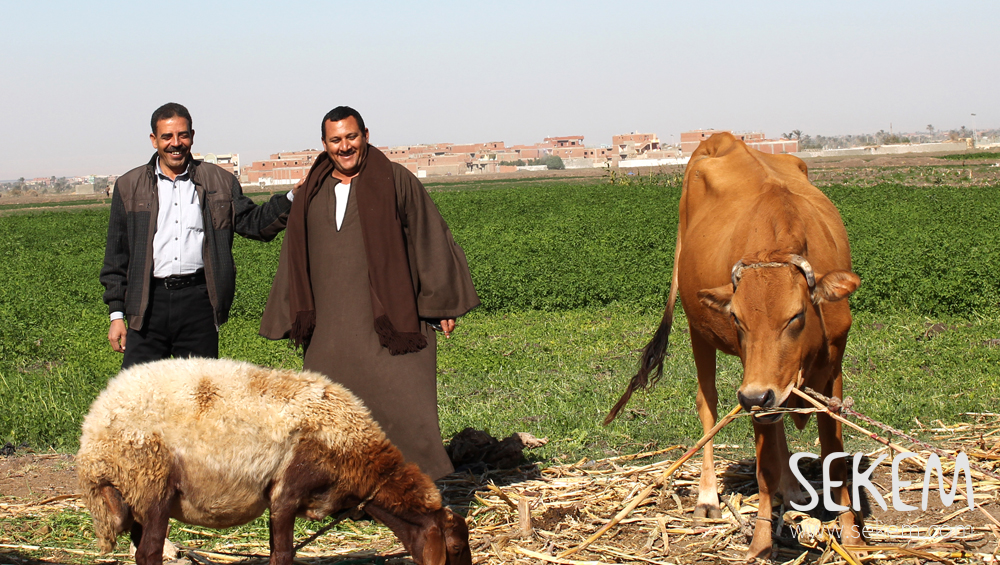In Fayoum, the SEKEM Initiative is working together with 16 contracted farmers, who grow mainly herbs according to Biodynamic guidelines. Mahmoud and Ahmed are working with SEKEM since more than 20 years. They are telling about the changes that happened through sustainable agriculture in Egypt’s oldest city and which challenges they are facing nowadays.
Approximately 100 kilometers southwest of Cairo, the dry desert area slowly becomes fertile green land. The oasis of Fayoum extends over approximately 1700 square kilometers. In the same named capital of the governorate Fayoum, people settled already 4,000 years BC. Thus, Fayoum is the oldest city in Egypt. Here, in the so-called “vegetable garden of Cairo” SEKEM cooperates with 16 contracted farmers, who are cultivating an area of 1250 feddans (one feddan is about 0.42 hectares) using Biodynamic principles. At the beginning of the 90s SEKEM started to expand its own agricultural production by training farmers all over Egypt in Biodynamic agriculture and help them to switch from conventional to sustainable farming. This did not only show effects on agriculture and working conditions of the farmers, but also supports a change in society.
Fayoum – „Vegetable Garden of Cairo” and Oldest City in Egypt
“In 1992 I got to know Dr. Ibrahim and started to work with him and SEKEM“, Mahmoud Farouk tells about his first meeting with the SEKEM Founder. “Since then a lot of things have changed in our village. Not only the life of the farmers improved as they receive for instance a reliable income, also the illiteracy rate decreased.” SEKEMs contracted farmer lives with his family in a small village that belongs to Fayoum. Once, he cultivated a large area of land together with his brothers and 130 other farmers. SEKEM helped them to convert the land from conventional to Organic soil. Later, he bought 100 feddan desert land together with his cousins and reclaimed it with Biodynamic methods. Mahmoud and his family grow especially chamomile, calendula, fennel and cumin. Typical crops in this area.
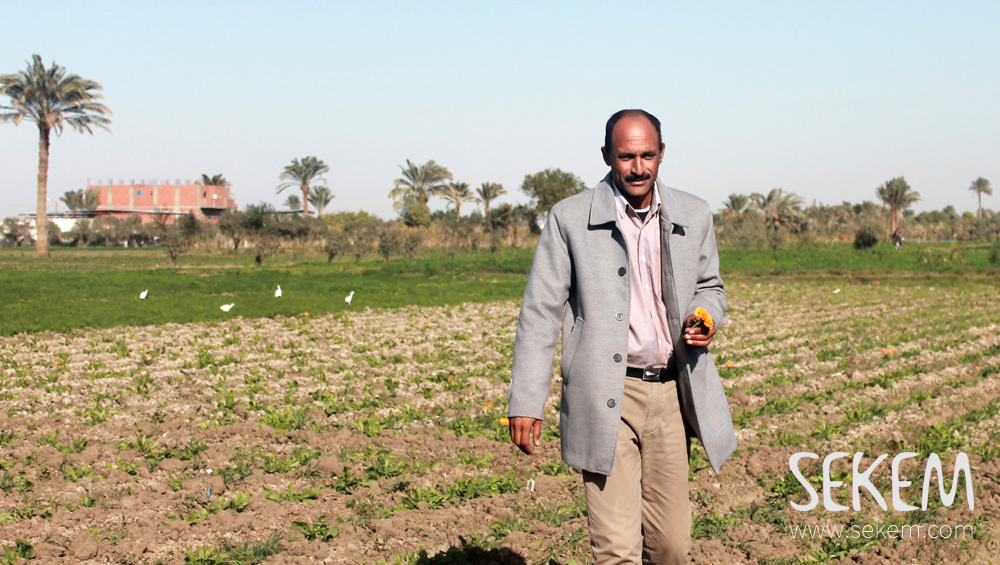
In the small sandy alleys of the village Fayoum, where Mahmoud lives with five daughters and a son, many children are running through the streets. Fresh herbs from the field are transported by donkey carts to the drying houses and men with Gallabiyyas (a long Egyptian robe) and turban are sitting in front of their homes drinking tea. A quite idyllic image, if there wouldn´t be all the rubbish on the streets and if the children would regularly go to school. “Unfortunately, many people here are not aware of the bad impacts that all the waste has to the environment and many parents don’t see the benefits of letting their children finish school”, recounts Mahmoud, who was working as a teacher once by himself.
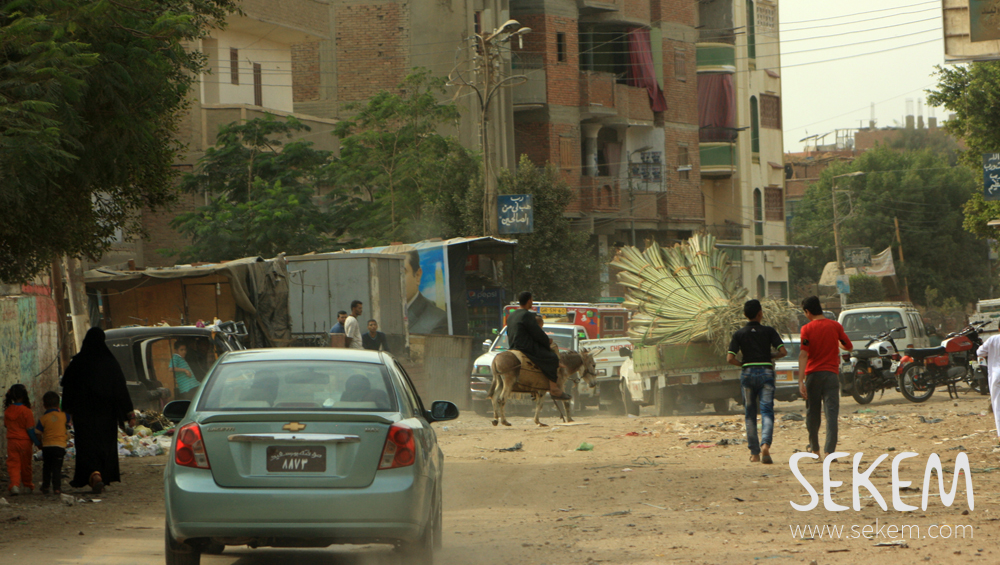
Until lately, he taught history and social studies next to his activity as a farmer. Now, his agriculture business is running very successful so that he has no time for a second job left anymore. “It is the same story with most of the farmers working with SEKEM. We have contracts with fixed prices that enable us to calculate much better and make long-term plans. Besides, we take higher prices for the Organic grown crops compared to our colleagues that are applying conventional methods”, Mahmoud says.
SEKEM and the Contracted Farmers – A Win-Win Situation
Not only the farmers but also SEKEM benefits from the cooperation. “It’s a win-win situation”, explains the agricultural engineer Abd El Razek, who is responsible for the communication with Mahmoud and all other SEKEM farmers in Fayoum (16 peasants, who employ 700 more people on their properties). “SEKEM and the contracted farmers are equal partners”, he states. Without the reliable partnership with long-term suppliers all over the country, SEKEM wouldn’t be able to meet the demand of high-quality raw material. Moreover, SEKEM can only guarantee a coherent and fair value chain trough this constant and reliable cooperation takes an essential part in the sustainable and holistic vision of the initiative. Besides, the contracted farmers are important partners in promoting awareness for sustainability all over the country.
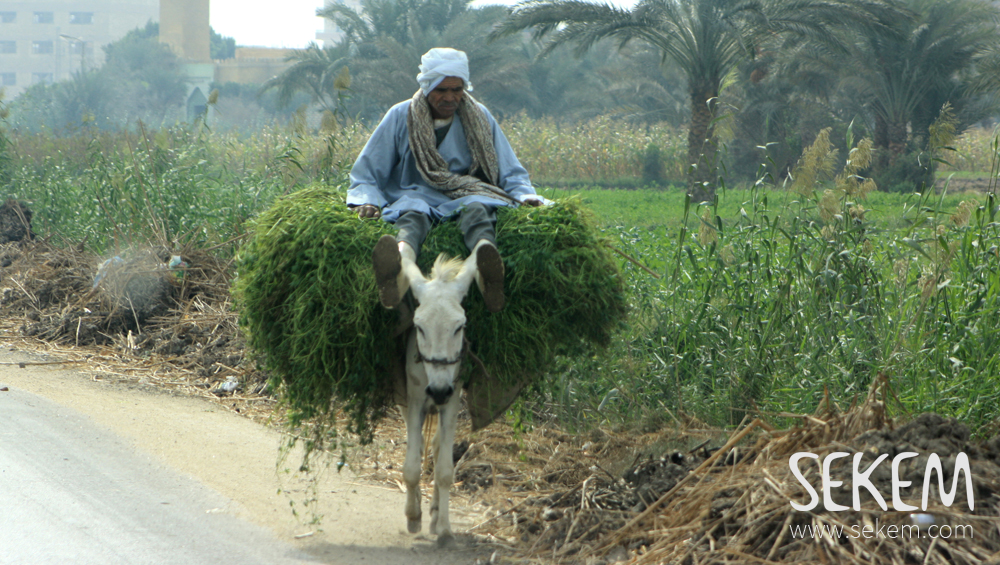
Also Mahmoud’s colleague Ahmed Abu Hamed appreciates the benefits of dependable contracts and Biodynamic agriculture. The Fayoum-farmer is cultivating 75 Feddan of land for SEKEM already since 20 years. Together with his brother he leads a farm that mainly grows herbs and vegetables but also includes animals for their own consumption.
Realizing Challenges, Creating Awareness, Taking over Responsibility
Together with his wife and four children Ahmed lives in a big house at the edge of the village, close to the fields. Right in front of his doorstep, he made a small garden with banana trees that provide shade. Over the way the family built a small drying factory where fresh herbs from the fields are pre-dried before they are transported to SEKEMs company Lotus, which is further processing them.
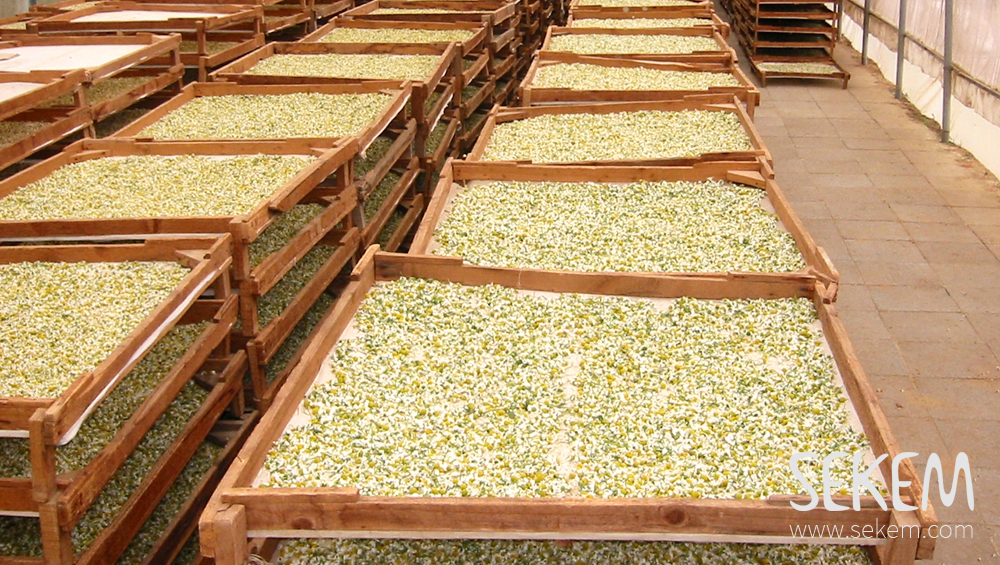
The SEKEM farmer regularly participates in training courses on topics related to Organic agriculture. “We, the SEKEM contracted farmers known already for a long time, which benefits for example compost compared to conventional fertilizer has. The challenge is to spread this knowledge among more and more people. We have to raise awareness for instance about the fact that healthy, fertile soil is more profitable in the long-run than the fast production for quick money”, Ahmed explains. “Therefore, it is important to promote education. My children shall study first, before they eventually take over our business.” The family man regrets that SEKEM doesn’t provide a school in Fayoum.
His colleague Mahmoud has similar thoughts. The eldest daughter of the SEKEM contracted farmer, Shorouk, is studying Pharmacy at the Heliopolis University for Sustainable Development. For this reason, she had to leave the family home and moved to Cairo. “It would be great if the Heliopolis University would have further branches across the country”, says Mahmoud. “It is really important to implement holistic education in Egypt. This could prevent many problems, such as migration and even terrorism.”
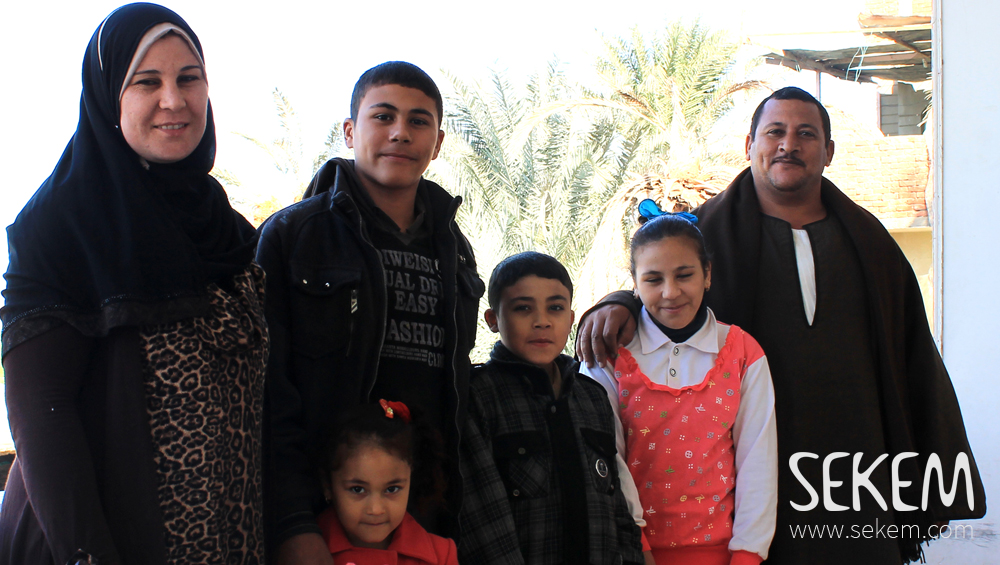
Mahmoud and Ahmed are quite happy with the chances they receive being farmers in Fayoum. And they are thankful for being able to guarantee a safe livelihood to their families through their business. However, they recognize the problems of their country with concerns. “We live in Egypt below the water poverty line, pesticides contaminating our soil, we constantly lose fertile land, which is very rare in Egypt and the investments to education are too small to raise awareness about all these challenges”, says Mahmoud.
In the green oasis, close to Cairo, where more than 6000 years ago the high civilization of ancient Egypt developed – Fayoum is often called the “cradle of agriculture” – the two farmers, Ahmed and Mahmoud, are today contributing to the development of their country. Actively, they take over responsibility for the soil that they cultivate and think sustainably about the country’s future, which will be shaped by their children’s generation.
Christine Arlt
Training for SEKEMs contracted farmers in Beheira

